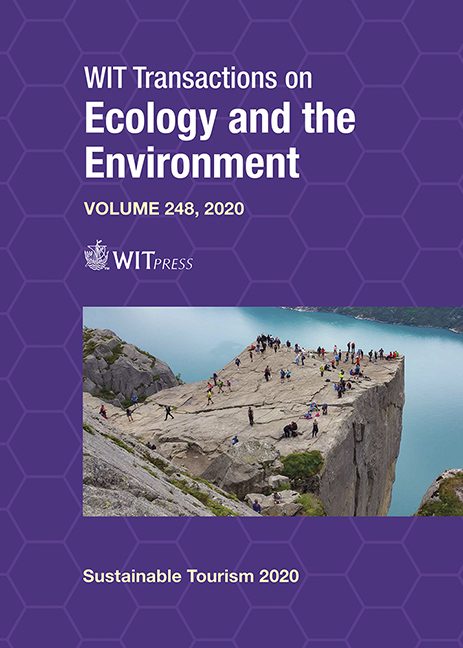ILLUMINATING GREEN HOTELS: UNIVERSITY STUDENTS’ REAL-WORLD EDUCATIONAL ACTIVITIES
Price
Free (open access)
Transaction
Volume
248
Pages
12
Page Range
141 - 152
Published
2020
Paper DOI
10.2495/ST200121
Copyright
WIT Press
Author(s)
PAULETTE HEBERT, GREGORY CLARE
Abstract
Hotels can play an important role in tourists’ experiences. Illumination is a critical component in hotel design. The objective of this study is to document appropriate educational activities which advocated the design of green (sustainable and healthy) hotels while specifically addressing relevant illumination issues, (i.e., reducing energy consumption through the use of Light Emitting Diodes (LEDs) and state-of-the-art lighting controls; and using “daylight harvesting”) so as to prepare University students to understand and improve hotel designs of the future. This presentation will explore three very different, faculty-led, educational activities (Part 1, Part 2 and Part 3) related to green hotels, all conducted with the ultimate goal of understanding and improving tourist experiences: Part 1). Graduate student workshop at international conference: document hotel guest room temporary LED conversion and determine light spectra and light level measurement activity using spectrometers; Part 2). Undergraduate student in-class field study: document LED replacements in an on-campus hotel guest room’s temporary conversion and light spectra and light measurement activity using spectrometers and light meters; Part 3). Six-week undergraduate student design studio class project to renovate lighting of an existing hotel such that it was sustainable. Use of energy-efficient light sources and lighting controls while minimizing watts/square feet were important considerations. Students utilized spectrometers and AutoCAD Enscape software to explore existing conditions or develop hotel renovation recommendations. N=61 students participated in the three activities. Students gained knowledge of “real-world”, appropriate lighting design approaches for green hotels which could influence tourists’ future experiences.
Keywords
lighting, hotel, energy efficient, LED, green, sustainable, tourism





